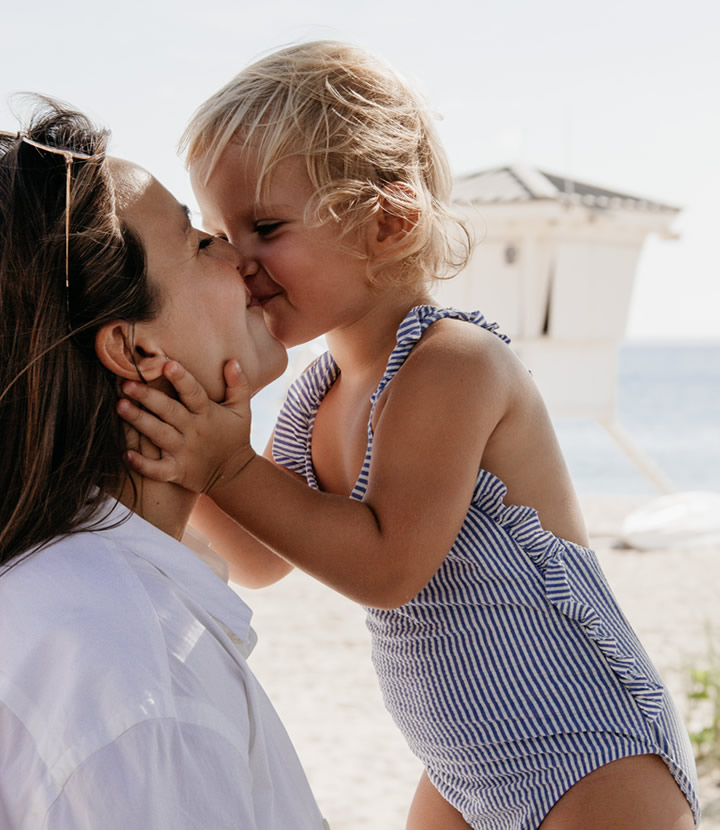Caring for parents to care for children
Blog written by the psychologists at Psinove. We explore topics related to psychology and psychotherapy, daily challenges, and reflections.

Being aware of your own emotional processes, your insecurities, tendencies, and the influence of your life history as children can be fundamental for many parents when dealing with difficult emotions and/or behaviors of their children.
In the challenging task of being a father or mother, many questions often arise about how well they are raising their children. Currently, with the enormous availability of information (not all of it serious and trustworthy), it is natural for many parents to feel lost about which guidelines to follow when dealing with their children.
When my adult patients come to the consultation and bring me questions related to their children, there are inevitably some questions that automatically come to mind:
- What kind of children were these parents?
- How were they raised and what did they learn from the (better and worse) examples of the parents/attachment figures they had?
- What beliefs do they bring about what a child should be, do, and/or feel?
- What do they know about the development (cognitive and especially emotional) of a child?
This theme is often, for me, more complex than "just" providing some behavioral indications that parents should follow. After all, I am interested in building within them their own compass of parenthood, adjusted to their values, without then constantly depending on health professionals. I am also interested in working on some confidence in a role that often raises doubts and uncertainties.
It is important to take into account that for a long time (and in some cases still today), children were seen as "mini adults." What was expected of them was to "behave well" (whatever that may mean for each parent), and that more explosive or unpleasant emotions or reactions were not expressed, with the aim that, by "not thinking about it anymore," emotions would simply disappear. We now know that this is not what happens. When we do not express an emotion, it does not simply disappear, continuing within us and often even being intensified.
Bas ing education on “swallowing” emotions often brings (almost always, in fact) quite complicated consequences throughout life.
Being this, a generation of parents who were educated with some dose of this philosophy, naturally if we cannot deal well with our unpleasant emotions, because we never learned it, how are we going to teach our children to do it? How are we going to deal with their emotions when they are as raw as ours, in our childhood, at some point they were?
It is for these reasons that I deeply believe that taking care of parents (helping them deal with their emotions/operating patterns as adults, understanding how they can transform ways of reacting, allowing themselves to feel unpleasant emotions) will make them much more available to empathize with the emotions and even with the difficulties and challenges of their own children.
What we hear throughout life and the way we were educated originates in us beliefs that can be dangerous for the development of children, such as the following two:“You can't be afraid, you have to be brave” – Fear is a highly adaptive and protective emotion, it exists for the survival of the species and is common to all mammals. When we are talking about a child, who is learning to deal with this complex world full of rules, stimuli, people, and places, it is quite natural to feel overwhelmed and afraid. It is even quite smart for him to do so and it may be a sign to the parents that he needs them to give him security and reassure him in his fears. Telling your children something like "I know you're afraid, do you want to talk a little about what scares you?" or "Are you afraid, do you want a hug? We'll see together what to do next." can give him the security, permission, and lap to healthily welcome that emotion. Also, ask yourself the following questions: How do you deal as an adult with your fears? How do you remember dealing with fear when you were a child? And how did your parents deal with the fears you had as a child?
“Yelling or throwing a tantrum is misbehaving!” – Tantrums (or other explosive behaviors) are abrupt emotional manifestations, usually in response to unmet needs or desires. Children, especially the youngest ones, still have a lot of difficulty managing their frustration, so when they want something, they expect it to be given to them. Often, they do not understand why they can have what they want at some moments and not at others. It is essential for the father or mother to be aware of this so that they can, once again, provide the stability and security necessary for the child to express their need and have it placed and, above all, explain the rule in question. Patiently waiting (even if it is difficult for you, father or mother) for the child to integrate the information, calmly repeating as many times as necessary that he understands that he feels this way, but that it is not possible for him to have what he wants at this moment. If a child's tantrum leads to emotional withdrawal of the adult, either by ignoring the child's behavior or by invalidating or punishing his expression space, the child may begin to feel abandoned or punished when feeling very intense emotions and that can develop in him other types of issues later. Of course, each case is a case, but it may be worthwhile as an adult to reflect: How do you feel when the child throws a tantrum? What emotions does that trigger in you? Do you allow yourself as an adult to get angry or frustrated explicitly and healthily? If explosions of anger and frustration are natural in the child, when they happen in an adult, it may already mean that they are being repressed and accumulated. Crying and tantrums are often the only way a child has to communicate anger or frustration and this should be healthily allowed, even if the adult has some difficulties in dealing with it.
Note that, with all this, I am not discarding the fact that there are difficulties or symptom patterns in children that need to be evaluated by health professionals. I am just providing this perspective that can alone help you understand in yourself, father/mother, the difficulty in dealing with certain behavior of your son/daughter because it emotionally touches areas that are sensitive to you.
Repressing emotions continuously often brings long-term complications. And therefore, we need to take care of parents who do not allow themselves to feel fear (so that they do not evolve into anxiety crises or panic attacks), who do not allow themselves to get angry (to prevent accesses of rage they cannot control) or who do not accept that being sad is part of life at certain moments (whose repression can later evolve into depressive patterns).
It is important to know that, as mammals, we tune our nervous system with that of our family of origin and this brings us some questions. Before we learn to regulate and calm ourselves alone, we learn to regulate ourselves with the support, help, and nervous system of our caregivers, this is called co-regulation. It is the nervous system and physiology of our caregivers that informs our nervous system, brain development, and even the behavior of our organs. We are born prepared to perceive through the signals that our caregivers send us whether we are in a context of danger or safety. And this will have a huge impact on us and on our ability to regulate ourselves and find safety and stability in adult life, as well as in all our relationships.
It is this primordial relationship with our caregivers that will influence so many others throughout our lives. And this is one of the many somatic aspects that are passed down from generation to generation unconsciously. This is one of the fundamental reasons why we need to learn to regulate ourselves, take care of our wounds, insecurities, and so many other aspects so that we can physiologically pass on this sense of security to our children. This does not mean that caregivers have to always be regulated, of course! But it means they have this responsibility to self-regulate in order to pass on security, tranquility, stability, and predictability to their children.
In early childhood especially, security can be translated by quiet and respectful physical contact, by holding, sweet and loving words, much understanding (especially in the most deregulated moments of children). Basically, this is what love is. Of course, limits and rules are very important, but they must always be accompanied by this security, support, and feeling of shelter that are so important for the nervous system of your children.
The wonder of being able to accompany parents is also to bring them this dimension that they can learn about themselves through what their sons and daughters make them feel if they are available to see in their children an endless source of teachings throughout all their growth.
Article published on Sapo 24




